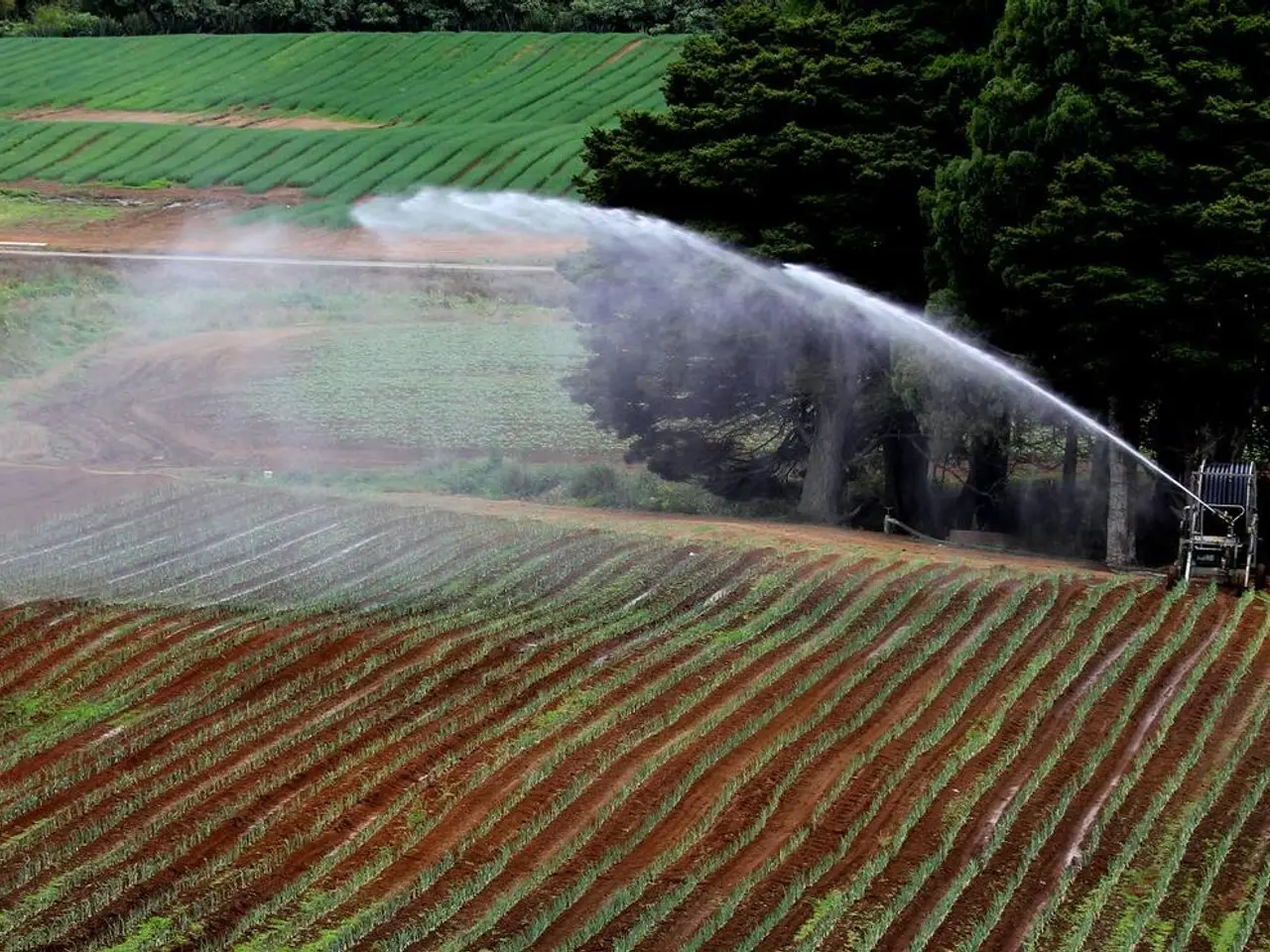Maintaining irrigation systems smoothly: preventing disruptions
Maintaining an efficient and reliable irrigation system is essential for a lush, green garden all year round. Here are some key steps to perform regular maintenance on your irrigation system and prevent disruptions while ensuring optimal efficiency.
Firstly, monitoring water pressure weekly is crucial. Keep water pressure within the normal range of 30-50 PSI. High pressure can damage pipes and sprinkler components, while low pressure leads to poor coverage. Regularly check for visible leaks, cracked pipes, broken sprinkler heads, and soggy spots in the lawn indicating underground leaks. Addressing leaks early prevents water waste and costly repairs.
Cleaning filters and sprinkler heads every 4-6 weeks during heavy use is another important maintenance practice. This helps maintain water flow and protect pumps. Remove debris and sediment from sprinkler heads to avoid clogging and ensure proper spray distribution.
Adjusting spray patterns and timers monthly is necessary as plants grow and weather changes. Adjust sprinkler heads to avoid watering hard surfaces and adapt timers to seasonal water needs to prevent over or under watering.
Testing and adjusting watering schedules seasonally is also vital. Modify watering duration and frequency based on temperature and rainfall, increasing irrigation during hot months and reducing it as plants enter dormant periods.
Scheduling professional routine checkups seasonally is highly recommended. Engage trained technicians to inspect all system components, perform repairs, calibrate zones, and update smart controllers if installed. This helps catch minor issues early and keeps the system running efficiently year-round.
Preventative winterization is necessary before winter, especially in colder climates. Drain and protect pipes and valves to prevent freezing damage, ensuring system longevity.
Incorporating smart technology when possible can also help. Using rain sensors, soil moisture monitors, and weather-based controllers can automate optimal watering and reduce waste.
By consistently performing these maintenance practices, irrigation systems will operate efficiently, minimise disruptions, save water and energy, and reduce costly repairs over time.
Optimising water usage through the use of rain sensors and high-quality materials can help conserve water and reduce waste. Conducting regular system tests, activating each zone at least once a month, can help prevent issues and ensure the system is functioning properly. Using high-quality materials for the irrigation system ensures it lasts longer and is more resistant to environmental influences.
Visible disruptions in the garden, such as dry areas or unusual flooding, are clear signs of a problem requiring immediate attention. Regular system tests are key to preventing disruptions and maintaining the efficiency of the irrigation system. Regular maintenance involves cleaning filters and nozzles to prevent blockages. Uneven irrigation can be caused by clogged nozzles, misaligned heads, or unbalanced pressure. Stable pressure in each zone and the absence of unusually wet spots or puddles are signs of a well-maintained system.
In conclusion, a well-maintained irrigation system does not require miracles, just the right maintenance practices. Regular maintenance helps identify signs of wear and tear early on, preventing damage to components. A clean and well-adjusted system ensures even water distribution, reducing waste and providing plants with the actual amount of water they need. With these tips, you can keep your irrigation system in tip-top shape and enjoy a beautiful garden all year round.
[1] Irrigation Association: https://www.irrigation.org/ [2] Toro: https://www.toro.com/ [3] Rain Bird: https://www.rainbird.com/ [4] Hunter Industries: https://www.hunterindustries.com/
A balanced lifestyle that inclines towards outdoor-living and home-and-garden upkeep can benefit from a well-maintained irrigation system. Regularly performing tasks such as scheduling professional checkups, conducting system tests, optimising water usage through technology, and adjusting watering schedules and spray patterns can help conserve water, reduce waste, and maintain the lushness of your garden.
By incorporating smart technology, you can contribute to water conservation and enjoy the perks of an efficient irrigation system that requires minimal intervention, allowing you to focus on your outdoor-living lifestyle and home-and-garden endeavors.




